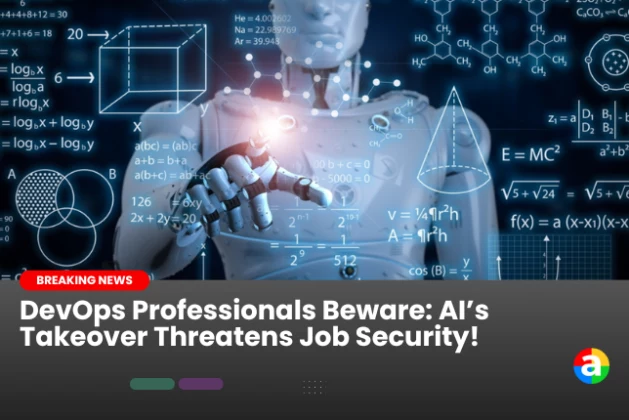Summary –
- Generative AI is revolutionizing the software development landscape by enhancing efficiency and creativity. Tools like GitHub Copilot and Tabnine simplify release notes, streamlining processes and setting new standards.
- However, it also presents challenges in addressing short-term skills gaps, navigating mid-term talent augmentation, and embracing a long-term, flexible workforce.
Introduction
In the ever-evolving landscape of DevOps, the emergence of generative AI has sparked both curiosity and concern among professionals. As technology continues to reshape industries, DevOps remains at the forefront of innovation, constantly adapting to integrate new tools and methodologies. But what implications does generative AI hold for key roles within DevOps? Join us as we delve into the transformative potential of generative AI and its impact on the future of software development.
Exploring Generative AI’s Influence:
1. Shaping the Developer Landscape:
Generative AI promises to revolutionize code generation, offering developers new avenues for efficiency and creativity. With tools like GitHub Copilot and Tabnine leading the charge, developers stand to benefit from predictive coding capabilities, freeing up valuable time for innovation.
2. Revolutionizing Release Management:
From simplifying release notes to orchestrating feature releases, generative AI is reshaping the way release managers operate. Tools like Digital.ai and K8sGPT are streamlining processes and setting new standards for efficiency in software deployment.
3. Reinventing Security and Compliance:
Security and compliance engineers are facing a paradigm shift with the integration of generative AI. Companies like Jfrog and Snyk are leveraging AI to detect vulnerabilities and enhance cybersecurity measures, but the implications extend beyond protection to ethical considerations and regulatory compliance.
4. Empowering Automation Architects:
For automation architects, generative AI represents another tool in their arsenal for streamlining complex tasks and driving productivity. By automating redundant processes, AI enables teams to focus on strategic initiatives and innovation.
Generative AI’s Impact on Key Job Roles:
1. Addressing Short-term Skills Gaps:
As generative AI disrupts traditional workflows, organizations must adapt to bridge existing skills gaps. Leaders play a crucial role in guiding teams through this transition, emphasizing the importance of investing in capabilities and tools.
2. Navigating Mid-term Talent Augmentation:
With role disruption on the horizon, DevOps teams must prioritize communication, collaboration, and performance optimization. Research and structured approaches are essential for navigating the evolving landscape of talent augmentation.
3. Embracing a Long-term, Flexible Workforce:
As generative AI becomes more pervasive, companies must embrace flexible workforce models to remain competitive. Task-based frameworks and capability-driven roles will redefine traditional job structures, emphasizing collaboration between humans and machines.
For more such content, follow: Analytics Jobs
Conclusion:
The integration of generative AI into DevOps presents a wealth of opportunities for innovation and efficiency. While the technology holds immense promise, its implementation requires careful consideration of ethical, regulatory, and skill-related implications. By embracing generative AI as a catalyst for change, DevOps professionals can position themselves at the forefront of industry evolution, driving productivity and achieving business objectives in the digital age.



